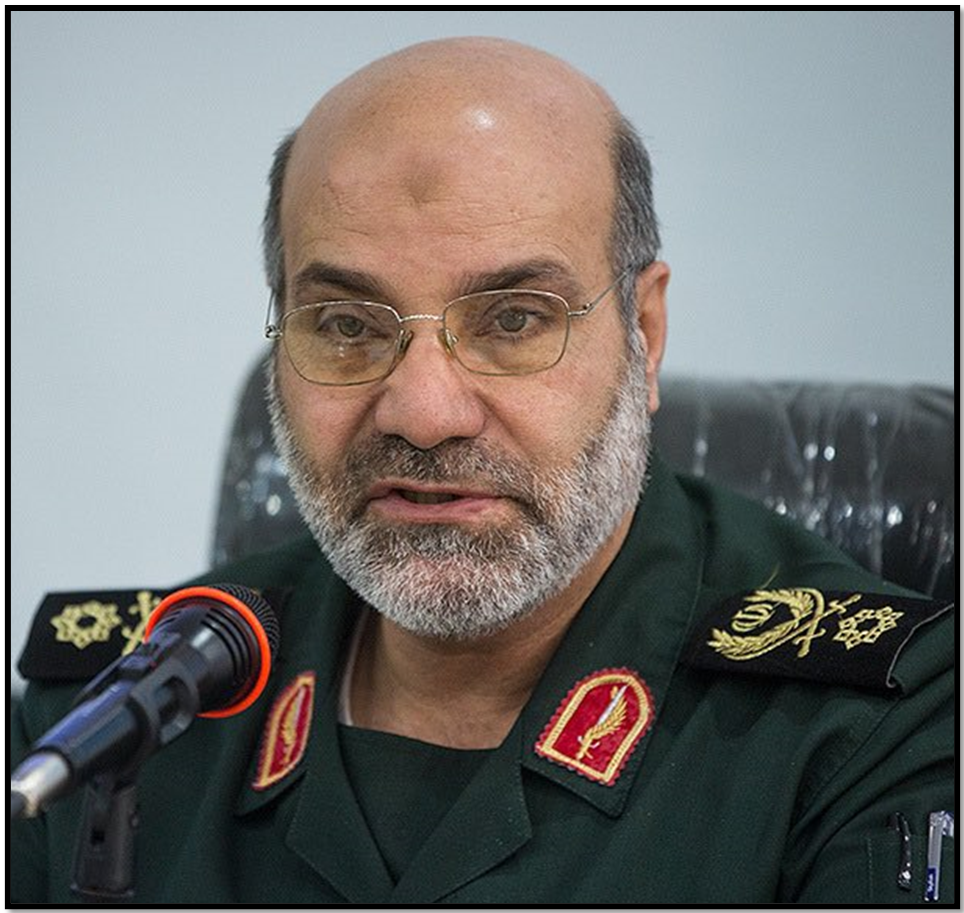On April 1, 2024, an Israeli airstrike killed three generals in Iran’s Revolutionary Guards and four other officers at a consulate abutting the Iranian embassy in Damascus. The attack was an unprecedented escalation in the decades-long shadow war between Israel and Iran. The precision strike, reportedly by two F-35s, targeted a meeting between Iranian officers and Palestinian militia leaders to discuss the war in Gaza.
The Iranian facility was leveled and vehicles parked in front were destroyed, but the adjacent structures, including the Iranian embassy and the Canadian embassy appeared to be largely undamaged. “This is no consulate and this is no embassy,” Rear Adm. Daniel Hagari, told CNN. “This is a military building of Qods Forces disguised as a civilian building in Damascus.”
Syria says an Israeli air strike has destroyed parts of the Iranian consulate in Damascus, killing or wounding everyone inside the building.
Senior Iran Revolutionary Guard Corps (IRGC) commander Mohammad Reza Zahedi is among those killed, according to Iranian state media ⤵️ pic.twitter.com/yQylWhQYoD— Al Jazeera English (@AJEnglish) April 1, 2024
Many analysts expressed concern about the prospects of miscalculation by Israel or Iran. “Israel, like the U.S., appears to believe that Iran is being successfully deterred by military action, but continued escalatory strikes on Iranian facilities and IRGC generals risks eventually forcing a more assertive Iranian response,” Julien Barnes-Dacey of the European Council on Foreign Relations warned.
The three generals were part of the Qods Force, the external operations branch of the Revolutionary Guards has aided, armed and coordinated with Iran’s so-called Axis of Resistance network in Syria, Lebanon, Iraq and Yemen since the 1980s. The fatalities included:
- General Mohammad Reza Zahedi, long-time coordinator of Iran’s covert operations in Syria and Lebanon
- General Mohmmad Hadi Haj Rahimi, Zahedi’s deputy
- General Hossein Aman Allahi, chief of the general staff of the Qods Force in Syria and Lebanon
- Hussein Youssef, a member of Hezbollah, a Lebanese Shiite militia and political party backed by Iran
Zahedi, 63, had also worked with General Qassem Soleimani, the flamboyant commander of the Qods Force who was killed in a U.S. airstrike in January 2020. Unlike Soleimani, Zahedi kept a low profile. He was later an advisor to Esmail Ghaani, Soleimani’s successor.
Zahedi joined the Revolutionary Guards and fought in the war with Iraq in the 1980s. He climbed the ranks of the Revolutionary Guards before moving to the elite Qods Force in 2008. He has since been active in Syria and Lebanon and was reportedly a confidant of Hezbollah Secretary General Hassan Nasrallah. In December 2023, Zahedi took over as the Qods Force commander for Syria and Lebanon after Israel allegedly killed General Razi Mousavi in an airstrike outside Damascus.

Since 2013, Israel has carried out hundreds of airstrikes against Iran and its network of proxies in Syria. But it has rarely claimed responsibility for individual attacks or assassinations. The shadow war is dubbed the mabam—or “war between the wars”—in Hebrew.
Tehran pledged revenge. “The evil regime will be punished by the hands of our brave warriors,” Supreme Leader Ayatollah Ali Khamenei said on April 2, 2024. The attack marked an escalation in tensions between Israel and the Iran-led “Axis of Resistance” – a network of militias across the Middle East and the Syrian government opposed to Israel.
A day after the bombing, the U.N. Security Council held an emergency session, when several countries expressed concern about international law and the protection of diplomatic facilities. Article 22 of the 1961 Vienna Convention on Diplomatic Relations states:
- The premises of the mission shall be inviolable. The agents of the receiving State may not enter them, except with the consent of the head of the mission.
- The receiving State is under a special duty to take all appropriate steps to protect the premises of the mission against any intrusion or damage and to prevent any disturbance of the peace of the mission or impairment of its dignity.
The Israel Defense Forces (IDF) did not comment on who was responsible for the April 2024 attack in Damascus. But Israeli officials signaled readiness for an Iranian response. Israel will strike "whoever harms us or plans to harm us," Prime Minister Netanyahu warned on April 4. Foreign Minister Israel Katz issued a more pointed statement on April 10. "Israel If Iran attacks from its territory, Israel will respond and attack in Iran."
Related Material:
